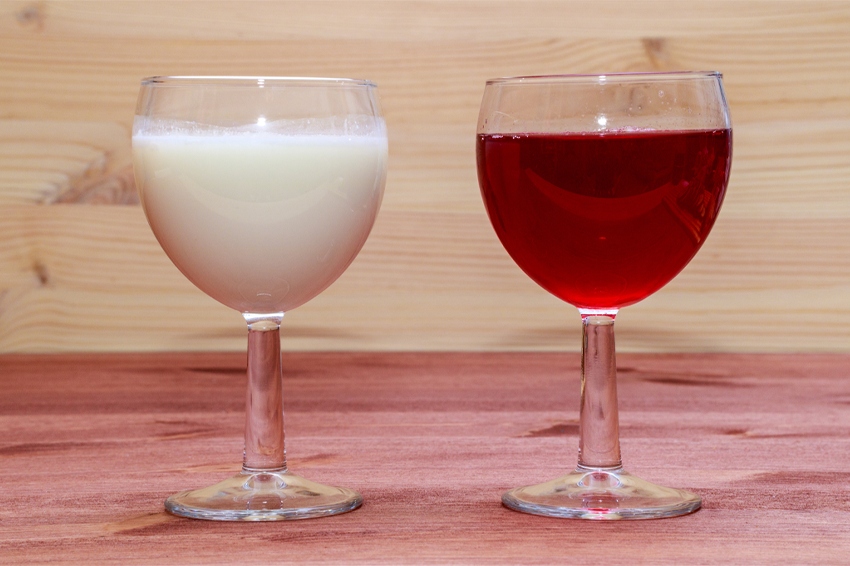Milk Consumption and Calcium: A Possible Shield Against Cancer?
A large British study suggests that drinking milk may lower the risk of colon cancer, with calcium in milk appearing to be the key protective factor.
In 2022, cancer in its various forms remained a leading cause of death in the developed world, constituting the leading cause of death in Canada, the second leading cause in the United States, and nearly equal to heart disease in the United Kingdom. Breast cancer in women and prostate cancer in men remained the most frequently diagnosed, followed by lung and colorectal cancers in both sexes. Studies show that colon cancer rates among immigrants change within just over ten years after moving, approaching those of the country they migrated to. This pattern suggests that lifestyle and environmental conditions are closely linked to the development of the disease.
Among the main environmental factors associated with cancer is diet, particularly in organs like the colon, which is part of the digestive system. However, as of now, there is no consensus among scientists regarding the link between most dietary factors and the risk of colon cancer. Alcohol and processed meat are the only food items with consistent findings indicating their association with the disease, while other components have been studied much less. There is a particular lack of studies examining all types of food together, and even in the existing research, measurement errors or small participant numbers are common limitations.

Colon cancer rates among immigrants tend to align with those of their new country within just over a decade. A doctor explaining the results of a colonoscopy to a patient | Shutterstock, aslysun.
Alcohol and Calcium
A recent study published in Nature Communications addressed gaps in previous research by systematically analyzing 97 nutritional components and their relationship to colon cancer risk. The data came from an ongoing UK cohort study that followed 542,778 women for an average of 16.6 years. At baseline, participants completed a detailed nutritional questionnaire, and during the follow-up period, 12,251 cases of colon cancer were recorded. The risk of developing the disease increased with age and physical height and was higher among women with a family history of colon cancer or less healthy lifestyle habits compared with others in the cohort.
Of the 97 nutritional components analyzed in the study, 17 were found to have a significant association with colon cancer risk, with the most prominent being alcohol and calcium. Alcohol consumption was strongly linked to an increased risk: for every additional 20 grams consumed per day, the risk rose by 15%. In contrast, consumption of calcium-rich foods, such as milk and dairy products, was associated with a reduced risk of colon cancer—every additional 300 mg per day lowered the risk by 17%. Other dairy components, however, showed no meaningful relationship to colon cancer risk.
Even after adjusting for factors such as smoking, physical activity, and body mass index, the links between alcohol, calcium, milk consumption, and colon cancer risk remained unchanged. Although the findings do not establish a cause-and-effect relationship, the fact that the results held steady when cross-checked against other dietary components suggests that these nutrients may have a direct influence on cancer risk.
On the other hand, while an initial negative correlation was observed between fruit and grain consumption and colon cancer risk, this association weakened after adjusting for other factors. This suggests that this relationship may be partly attributable to a broader pattern of a healthy lifestyle—particularly the adoption of a diverse, nutrient-rich diet centered on fresh, plant-based foods.

Alcohol consumption was strongly linked to an increased risk of cancer, while calcium-rich foods—such as milk and dairy products—were associated with a reduced risk. A glass of wine and a glass of milk | Shutterstock, Andrei Metelev.
Genetic Predisposition to Milk Consumption
To further support their findings, the researchers examined participants’ genetic predisposition to milk consumption. The ability to digest lactose—the sugar in milk—beyond infancy is associated with well-known genetic variants. Individuals with these gene variants can break down lactose without experiencing digestive discomfort and therefore tend to consume more milk. This genetic trait provides an objective indicator of milk intake, minimizing the biases and inaccuracies often associated with self-reported dietary data.
The study found that the protective effect of milk against colon cancer was stronger when milk consumption was estimated based on genetic predisposition, and weaker when relying solely on participants’ self-reported intake. If milk consumption does indeed offer protection against colon cancer, this suggests that individuals with lactose intolerance may need to seek alternative dietary sources of calcium, as calcium appears to be the key protective component.
These findings are consistent with previous research and recommendations from health organizations such as the World Cancer Research Fund (WCRF), which has shown a dose-dependent relationship between alcohol consumption and increased colon cancer risk. Likewise, similar to the current study, other research has found that even one daily glass of milk is significantly associated with a statistically meaningful reduction in the risk of developing colon cancer.




